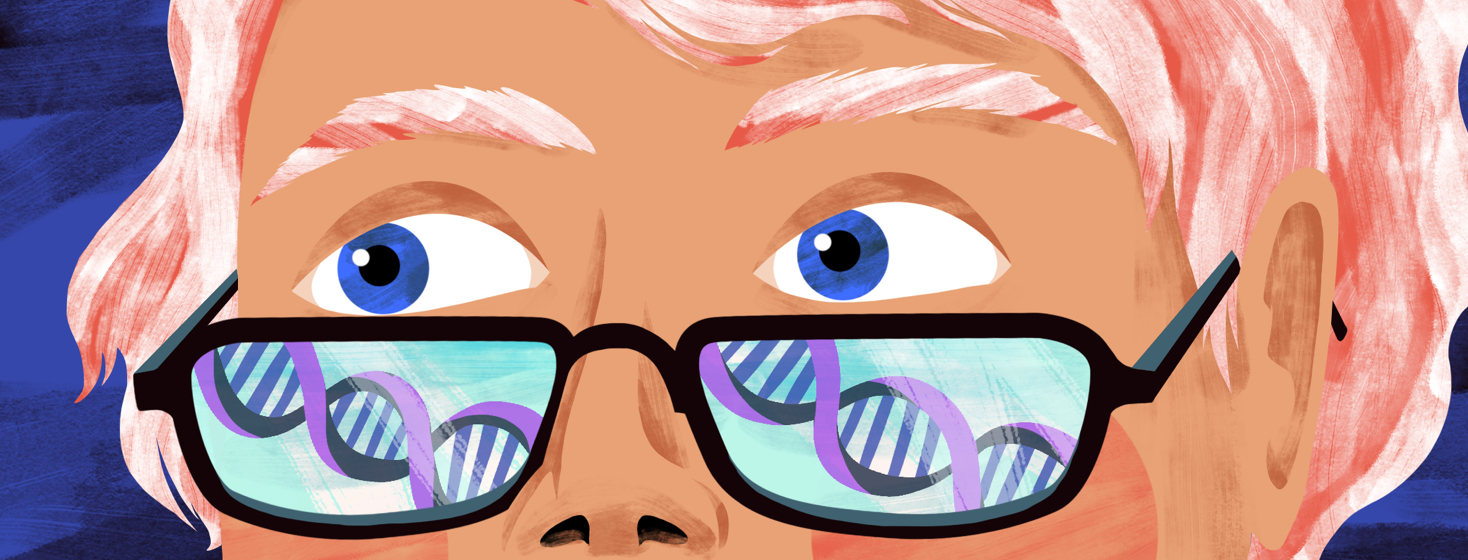X-linked Hypophosphatemia and Genetics
Reviewed by: HU Medical Review Board | Last reviewed: July 2023 | Last updated: October 2024
X-linked hypophosphatemia (XLH) is a genetic condition. People with XLH have changes in a specific gene that affect how their body uses the mineral phosphorus (phosphate). These gene changes are called genetic mutations.1
The XLH genetic mutation causes a variety of problems, but especially:2
- Deformed, weak bones that fracture easily
- Fatigue
- Dental and hearing problems
What do genes do?
Genes carry information that tells your body how to operate. For example, genes tell your body how to make and use proteins, cells, or other important things the body needs to work correctly. Some genes control visible things, like your eye and hair color. Other genes carry instructions for things we cannot see. In the case of people with XLH, this includes instructions for how the body processes phosphorus.3
The gene mutation linked to XLH
X-linked hypophosphatemia is caused by a mutation of the PHEX (pronounced feks) gene on the X chromosome. This mutation tells the body to make too much FGF23 (fibroblast growth factor-23) hormone. FGF23 controls how the kidneys filter phosphorus from the blood. It also leads to low levels of vitamin D.1,2
As a result, phosphorus and vitamin D that is needed for healthy bones and teeth and normal growth does not stay in the blood and instead gets excreted in the urine. This is known as "phosphorous wasting."1
Most people with the condition inherited it from their mother or father. Only about 1 in 5 people have what is called de novo XLH. De novo means a genetic disease occurs for the first time in someone whose parents do not have the condition.4
Who gets XLH?
X-linked means the gene that causes XLH is located on the X chromosome. Chromosomes hold all the genes we inherit from our parents. Females have 2 X chromosomes, one from their mother and one from their father. Males have 1 X chromosome from their mother and one Y chromosome from their father.2
If a mother has an X-linked mutation, her children, whether male or female, have a 50 percent chance of inheriting that mutation. A father with an X-linked mutation will pass that mutation to all of his female children and none of his male children.2
Anyone with a PHEX mutation will have x-linked hypophosphatemia.2
With conditions like XLH, only one mutated gene is needed for the baby to have the disease. It is called an autosomal dominant disorder.4
Talking with a genetic counselor
Genetic counselors are medical professionals who recommend genetic tests and interpret the results. These results are used to help people with X-linked hypophosphatemia better under understand their disease and how they inherited it.5,6
Genetic counselors also can help predict how a genetic disease might show up in your family over time.
Genetic counseling is a useful tool in family planning. If you have a family history of a genetic condition like XLH, you may want to get tested to see if you are a carrier. Your partner can be tested too. This can help determine whether your future children will be at risk.5,6
If you are interested in genetic testing, talk to your doctor. Your primary care doctor, orthopedist, or endocrinologist may already work with a genetic counselor. If you are pregnant or planning to become pregnant, your obstetrician may be able to guide you.5,6
You may also be able to find a genetic counselor through:5,6
- A nearby university hospital
- National Society of Genetic Counselors directory
- American College of Medical Genetics and Genomics directory
In some cases, genetic testing is covered by health insurance. A genetic counselor can help you figure out how to pay for genetic testing as well.

Join the conversation